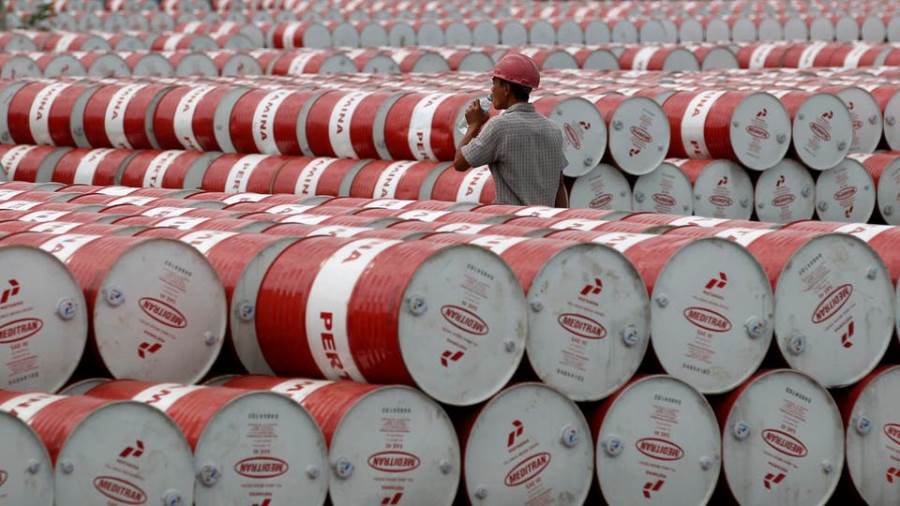The Uncertain Circumstances Surrounding Alexei Navalny’s Death and Putin's Alleged Non-Involvement
Amidst the haze of geopolitical tensions, the mysterious death of Alexei Navalny stirs worldwide debate on the involvement of Vladimir Putin.
Published April 28, 2024 - 00:04am

Image recovered from washingtonexaminer.com
Sources close to various investigations concerning the sudden death of Russian opposition leader Alexei Navalny have led to a contentious conclusion: that Russian President Vladimir Putin did not directly order Navalny's assassination. Reports from intelligence services in the United States, as mentioned by the Wall Street Journal, suggest that despite Navalny’s strong opposition to Putin and his mysterious death just before the Russian elections, there was likely no explicit command from Putin for such an action.
Navalny, a vehement critic of corruption within the Russian government, tragically passed away in February, under ambiguous circumstances, in a penal colony near the Arctic Circle. Despite accusations from Biden and other Western officials implicating Putin, contrasting views from various intelligence agencies and insiders have surfaced, indicating that the direct link to Putin may not be as clear as previously believed. Yet, this does not absolve Putin of responsibility concerning Navalny's death, with Biden and other Western leaders maintaining a firm stance on Putin's overarching culpability.
It's pivotal to note how these insights have been met: skepticism from other Western intelligence services and outright rejection by Navalny's close associates, who continue to assert that the Kremlin orchestrated the tragic event. Leonid Volkov, a close confidant of Navalny, has ridiculed the notion of Putin’s non-involvement, labeling it as 'ridiculous.'
Navalny’s untimely death follows a pattern of increasing sentences and charges against him by Russian authorities. Originally sentenced to 2 1/2 years in prison in 2021 for alleged extremism, more years were piled onto his term in subsequent proceedings. The very circumstances of his demise—collapsing during a prison yard walk after a period of non-communication—have sparked more questions than answers.
While the situation leaves many unanswered questions in its wake, the aggregation of international intelligence assessments contributes to a larger narrative of intrigue and suspicion in the murky waters of Russian politics and its dissidents’ fates.
The international spotlight once again turns toward the Kremlin and the shadowy machinations that might lay within its corridors of power, as the world grapples with another suspicious disappearance of a Kremlin critic. Alexei Navalny's death now stands among a series of contentious fatalities that raise questions about the fate of opposition voices in Russia. The lack of a direct order, according to the reports cited by the Wall Street Journal, casts a complex light on the power dynamics at play within the Russian political system, and raises the possibility of autonomous actions by individuals or factions loyal to the president's political ideology without his direct involvement.
In this instance, the ambiguity surrounding the incident reflects the opacity with which political operations are conducted in Russia. The veil of uncertainty that envelopes Navalny's death speaks to a broader modus operandi – one where adversaries of the state often find themselves in perilous situations. Missing from the reports is a definite trail leading to those who might have had both motive and means to cast the final die against Navalny, yet the circumstantial evidence compels the global community to look towards those in power.
Understanding the significance of Navalny's opposition requires a grasp of his influence not just within Russia, but on the international stage as well. A lawyer by training, Navalny leveraged social media and his Anti-Corruption Foundation to spotlight graft at the highest levels of government and business, framing his activism as a quest to recover the integrity of the Russian state for its people. This mission drew substantial support domestically and drew the eyes of the world to the state of Russian governance.
Consequently, Navalny’s activities were perceived as a substantial threat to existing power structures. His endeavors did not only infuriate government officials but also unsettled an oligarchic class accustomed to operating with a degree of immunity. In doing so, he became a target for harassment, incarceration, and worse. The narrative forwarded by Western officials, which points toward a broader culpability glosses over the intricate and potentially feuding power literature that exists within the Kremlin's hierarchy. Nevertheless, the public perception remains substantially influenced by the storied history of state-directed violence against political opponents in Russia.
Focusing on the broader context, the development of Navalny’s death has far-reaching implications. Internally, it has the potential to spark fear among the opposition, or conversely, galvanize dissent against the regime. For global politics, this incident exacerbates tensions between Russia and Western nations, particularly in an era where geopolitical rivalries are intensifying. The United States and European Union have repeatedly condemned what they view as politically motivated repression in Russia, imposing sanctions and demanding accountability.
Navalny's death has also given rise to an internal power debate in Russia, with some analysts suggesting the incident could be reflective of Putin's waning influence over Russian internal affairs and an indication that there might be power struggles within the Russian elite. While definitive answers may elude the public and intelligence circles alike, the story leads to further speculation on how leadership operates within Russia and the potential vulnerabilities within Putin's own political edifice.
Amid the political turmoil and strategic implications, a human element persists—an element underscored by the tragedy of Navalny’s passing and the mournful outcry from his supporters. As the world continues to watch, it is this element which resonates most profoundly, reminding observers that beyond the geopolitical chessboard are real lives, aspirations, and in too many cases, untimely deaths that punctuate the human cost of political strife.






